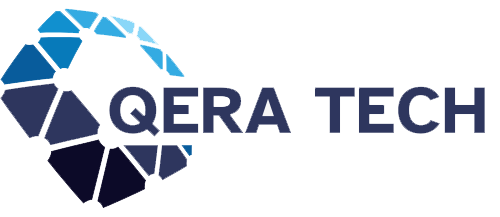A Midnight Ban That Shocked Millions
Imagine waking up and realizing that Facebook, YouTube, Instagram, X (formerly Twitter), LinkedIn, and Reddit have suddenly gone dark on your phone. That’s exactly what happened in Nepal after the government flipped the switch on a sweeping ban that took effect at midnight Thursday.
The move left millions of users scrambling for alternatives while sparking fierce debates over freedom, governance, and the growing power of tech platforms. For a country with a young, digitally active population, this wasn’t just another regulatory action it felt like someone had pulled the plug on daily life.
Why Did Nepal Block Major Social Platforms?
At the heart of this decision is a Supreme Court order. The court ruled that all major social media platforms must register with Nepal’s Ministry of Communication and Information Technology if they want to legally operate in the country.
The government gave companies a seven-day deadline to apply. Some, like TikTok and Viber, complied. Others, including the tech giants Meta (Facebook and Instagram), Alphabet (YouTube), and X, didn’t.
So, the government acted. A spokesperson clarified that any platform completing the registration process will be reinstated. Until then, access remains restricted.
On paper, the goal is clear: improve oversight of online content, make platforms more accountable, and ensure they follow Nepalese law. But in practice, the suddenness of the ban has raised eyebrows both locally and internationally.
Which Platforms Are Still Running?
Not every app went dark. According to local reports:
-
TikTok, Viber, and three smaller platforms are already registered and continue to operate.
-
Telegram and Global Diary have applications pending.
-
Facebook, Instagram, YouTube, X, LinkedIn, and Reddit are currently blocked.
This creates a patchwork digital environment where some platforms thrive while others are forced into limbo. It’s a bit like shutting down half the highways in a city and expecting traffic to flow smoothly.
The Government’s Argument
Officials insist that the social media restriction in Nepal isn’t about silencing people but about creating order. The government argues that without registration:
-
There’s no way to hold platforms responsible for harmful or illegal content.
-
Misinformation, hate speech, and online abuse spread unchecked.
-
Tech giants profit from local users without contributing to compliance or oversight.
In short, they want the same rules for global platforms that apply to domestic businesses.
One government spokesperson was blunt: “Registration is essential to monitor harmful content and ensure compliance with national laws.”
Déjà Vu: Nepal’s Earlier TikTok Ban
This isn’t Nepal’s first brush with tough social media policies. Just last year, TikTok was banned for months over concerns about its impact on public order and youth behavior. After negotiations and compliance steps, it was reinstated.
That history is important because it shows a pattern. Nepal isn’t afraid to flex its regulatory muscle against tech giants, even at the cost of short-term backlash from users.
How Ordinary Nepalis Are Affected
For many, the ban feels personal. Social platforms aren’t just entertainment; they’re the backbone of communication, small business marketing, activism, and even education.
-
Small businesses lose access to cheap digital advertising and customer engagement.
-
Students and professionals who rely on LinkedIn or YouTube tutorials are left stranded.
-
Activists and journalists worry about losing platforms that amplify marginalized voices.
I remember chatting with a friend in Kathmandu earlier this year who said, “If Facebook goes down, I lose half my customer base overnight.” That prediction has now come true.
The Populist vs. Practical Debate
Here’s what really stands out: the debate isn’t just about tech — it’s about trust.
-
Supporters argue that big tech companies act like digital landlords, making billions while ignoring local rules. Why shouldn’t they register and face accountability like everyone else?
-
Critics counter that banning platforms punishes ordinary citizens more than corporations. Instead of regulating content, the government risks isolating its people from the global digital economy.
Both sides have a point, and that tension mirrors similar debates worldwide — from India’s tussles with Twitter to Europe’s strict GDPR rules.
Workarounds and Digital Backdoors
Of course, bans don’t stop everyone. Reports suggest that many Nepali users quickly turned to VPNs (virtual private networks) to bypass restrictions. That’s not surprising. Every time a government blocks platforms, VPN downloads spike.
But this raises another question: does enforcing a ban push people toward less secure, underground tools, ironically making online safety harder to guarantee?
The Global Context
Nepal’s decision isn’t happening in isolation. Governments around the world are wrestling with how to handle social media giants that operate across borders.
-
India has repeatedly clashed with Meta and X over content takedown requests.
-
Europe has rolled out tough digital laws, forcing companies to comply with local standards.
-
The U.S. debates whether TikTok should be banned over security concerns.
In that sense, Nepal’s action is part of a larger trend: nations reclaiming digital sovereignty. The difference is scale — when a small country enforces such a ban, the shockwaves feel immediate and personal.
What Happens Next?
The ball is now in the tech companies’ court. If Meta, Alphabet, and X decide to register, the restrictions could be lifted quickly. But if they hold out, the ban could drag on with significant consequences for users, businesses, and even politics in Nepal.
The government has signaled flexibility: register, and you’re back online. But tech giants may resist if they fear setting a precedent for other countries to demand similar concessions.
Why This News Matters
When you step back, the social media restriction in Nepal is about more than one country. It’s a case study in the growing tug-of-war between national governments and global tech platforms.
For everyday people, it’s a reminder of how fragile digital freedom can be. One court order, one missed deadline, and suddenly the tools you rely on vanish overnight.

